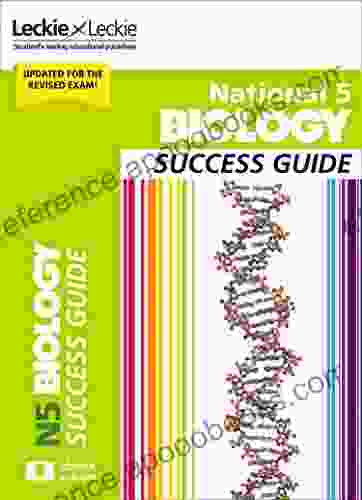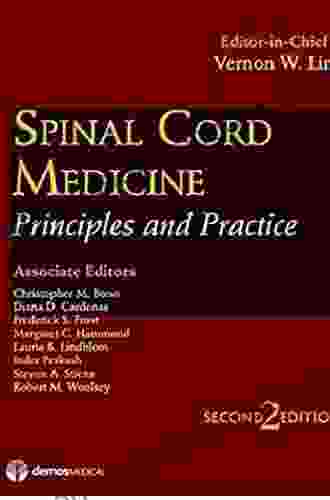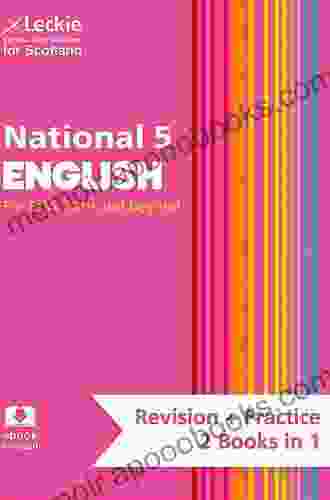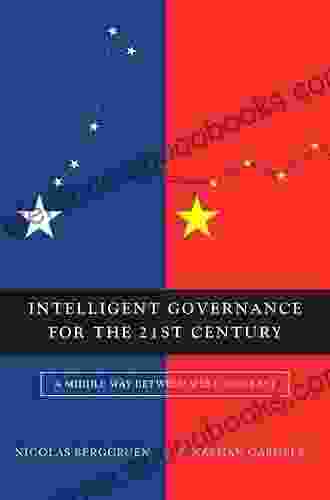Intelligent Governance for the 21st Century: The Key to Unlocking Economic Growth and Social Progress

4.2 out of 5
| Language | : | English |
| File size | : | 609 KB |
| Text-to-Speech | : | Enabled |
| Screen Reader | : | Supported |
| Enhanced typesetting | : | Enabled |
| Word Wise | : | Enabled |
| Print length | : | 208 pages |
| Lending | : | Enabled |
The world is facing a number of unprecedented challenges, from climate change to economic inequality to the rise of populism. These challenges are putting a strain on our existing systems of governance, and it is clear that we need to find new and innovative ways to govern ourselves.
Intelligent governance is a new approach to governance that uses technology and data to improve decision-making. Intelligent governance systems can collect and analyze data from a variety of sources, including sensors, social media, and government databases. This data can be used to identify trends, predict future events, and develop more effective policies.
Intelligent governance has the potential to revolutionize the way we govern ourselves. It can help us to make better decisions, improve public services, and create a more prosperous and equitable world.
The Benefits of Intelligent Governance
There are many benefits to intelligent governance, including:
- Improved decision-making: Intelligent governance systems can help governments to make better decisions by providing them with more accurate and timely information. This can lead to better outcomes for citizens, businesses, and the environment.
- Improved public services: Intelligent governance systems can help governments to improve public services by making them more efficient and effective. For example, intelligent governance systems can be used to track the performance of government agencies, identify areas for improvement, and develop new and innovative services.
- Increased transparency: Intelligent governance systems can help governments to be more transparent by making data and information more accessible to citizens. This can help to build trust between governments and citizens, and it can also make governments more accountable for their actions.
- Increased participation: Intelligent governance systems can help governments to increase citizen participation in the decision-making process. For example, intelligent governance systems can be used to collect feedback from citizens on proposed policies, and they can also be used to facilitate online public forums.
- Greater collaboration: Intelligent governance systems can help governments to collaborate more effectively with other organizations, including businesses, non-profits, and international organizations. This can help governments to develop and implement more effective policies, and it can also help to build stronger relationships between governments and other organizations.
The Challenges of Intelligent Governance
While intelligent governance has the potential to revolutionize the way we govern ourselves, there are also some challenges that need to be addressed. These challenges include:
- Data privacy and security: Intelligent governance systems rely on data, and it is important to protect the privacy and security of this data. Governments need to develop strong data protection laws and regulations, and they need to implement robust security measures to protect data from unauthorized access.
- Bias: Intelligent governance systems can be biased, and it is important to address this bias in Free Download to ensure that decisions are made fairly. Governments need to develop and implement policies to prevent bias from being introduced into intelligent governance systems.
- Complexity: Intelligent governance systems can be complex, and it is important to ensure that governments have the capacity to use these systems effectively. Governments need to invest in training and education, and they need to develop clear and concise policies on how intelligent governance systems will be used.
Intelligent Governance in the 21st Century
Despite the challenges, intelligent governance has the potential to make a significant contribution to the 21st century. Intelligent governance systems can help governments to make better decisions, improve public services, and create a more prosperous and equitable world.
Governments around the world are beginning to adopt intelligent governance technologies. For example, the United States government has invested in a number of intelligent governance initiatives, including the Smart Cities initiative and the Precision Medicine Initiative. The European Union has also invested in intelligent governance, and the European Commission has launched a number of initiatives to promote the use of intelligent governance technologies in the public sector.
Intelligent governance is still in its early stages of development, but it has the potential to revolutionize the way we govern ourselves. By using technology and data to improve decision-making, improve public services, and increase transparency, intelligent governance can help us to create a more prosperous and equitable world.
Intelligent governance is a new approach to governance that uses technology and data to improve decision-making. Intelligent governance has the potential to revolutionize the way we govern ourselves, and it can help us to create a more prosperous and equitable world.
4.2 out of 5
| Language | : | English |
| File size | : | 609 KB |
| Text-to-Speech | : | Enabled |
| Screen Reader | : | Supported |
| Enhanced typesetting | : | Enabled |
| Word Wise | : | Enabled |
| Print length | : | 208 pages |
| Lending | : | Enabled |
Do you want to contribute by writing guest posts on this blog?
Please contact us and send us a resume of previous articles that you have written.
 Book
Book Novel
Novel Page
Page Chapter
Chapter Text
Text Story
Story Genre
Genre Reader
Reader Library
Library Paperback
Paperback E-book
E-book Magazine
Magazine Newspaper
Newspaper Paragraph
Paragraph Sentence
Sentence Bookmark
Bookmark Shelf
Shelf Glossary
Glossary Bibliography
Bibliography Foreword
Foreword Preface
Preface Synopsis
Synopsis Annotation
Annotation Footnote
Footnote Manuscript
Manuscript Scroll
Scroll Codex
Codex Tome
Tome Bestseller
Bestseller Classics
Classics Library card
Library card Narrative
Narrative Biography
Biography Autobiography
Autobiography Memoir
Memoir Reference
Reference Encyclopedia
Encyclopedia Abu Zubier
Abu Zubier Adam Brandon
Adam Brandon L M Bogad
L M Bogad Leslie Vernick
Leslie Vernick Elvira Souza Lima
Elvira Souza Lima Greg Horne
Greg Horne Shipra Jain
Shipra Jain A T Butler
A T Butler Emmy Eugene
Emmy Eugene Marilyn Dumont
Marilyn Dumont A R Braunmuller
A R Braunmuller Wayne Errington
Wayne Errington Cheryl Bolen
Cheryl Bolen Mark J Garrison
Mark J Garrison Scott Jansen
Scott Jansen Richard Delong
Richard Delong Abraham Lincoln
Abraham Lincoln Tobias Hansen
Tobias Hansen Adam St James
Adam St James Debbie Johnson
Debbie Johnson
Light bulbAdvertise smarter! Our strategic ad space ensures maximum exposure. Reserve your spot today!

 Glenn HayesThe Neurosurgeon's Unexpected Family: A Heartwarming Tale of Love, Loss, and...
Glenn HayesThe Neurosurgeon's Unexpected Family: A Heartwarming Tale of Love, Loss, and... Dwight BlairFollow ·12.1k
Dwight BlairFollow ·12.1k Chris ColemanFollow ·3.5k
Chris ColemanFollow ·3.5k Tim ReedFollow ·5.8k
Tim ReedFollow ·5.8k Henry GreenFollow ·3.5k
Henry GreenFollow ·3.5k Norman ButlerFollow ·15.9k
Norman ButlerFollow ·15.9k Brian WestFollow ·17.3k
Brian WestFollow ·17.3k Chance FosterFollow ·19.6k
Chance FosterFollow ·19.6k Jason HayesFollow ·15.1k
Jason HayesFollow ·15.1k

 Justin Bell
Justin BellUnlock National Biology Success: The Ultimate Guide to...
Mastering the Fundamentals: A Comprehensive...
 Luke Blair
Luke BlairAC/DC: The Early Years with Bon Scott – A Thunderstruck...
In the annals of rock and roll history, few...

 Darren Nelson
Darren NelsonSpinal Cord Medicine Second Edition: The Comprehensive...
The second edition of Spinal Cord Medicine...

 Cole Powell
Cole PowellArabian Horse Training: Unlock the Secrets for a...
Indulge in the captivating world of Arabian...

 Oscar Wilde
Oscar WildeRevise Curriculum For Excellence SQA Exams: The Ultimate...
The Scottish...

 David Peterson
David PetersonEndoscopic Ear Surgery: A Comprehensive Guide for...
Endoscopic Ear...
4.2 out of 5
| Language | : | English |
| File size | : | 609 KB |
| Text-to-Speech | : | Enabled |
| Screen Reader | : | Supported |
| Enhanced typesetting | : | Enabled |
| Word Wise | : | Enabled |
| Print length | : | 208 pages |
| Lending | : | Enabled |










